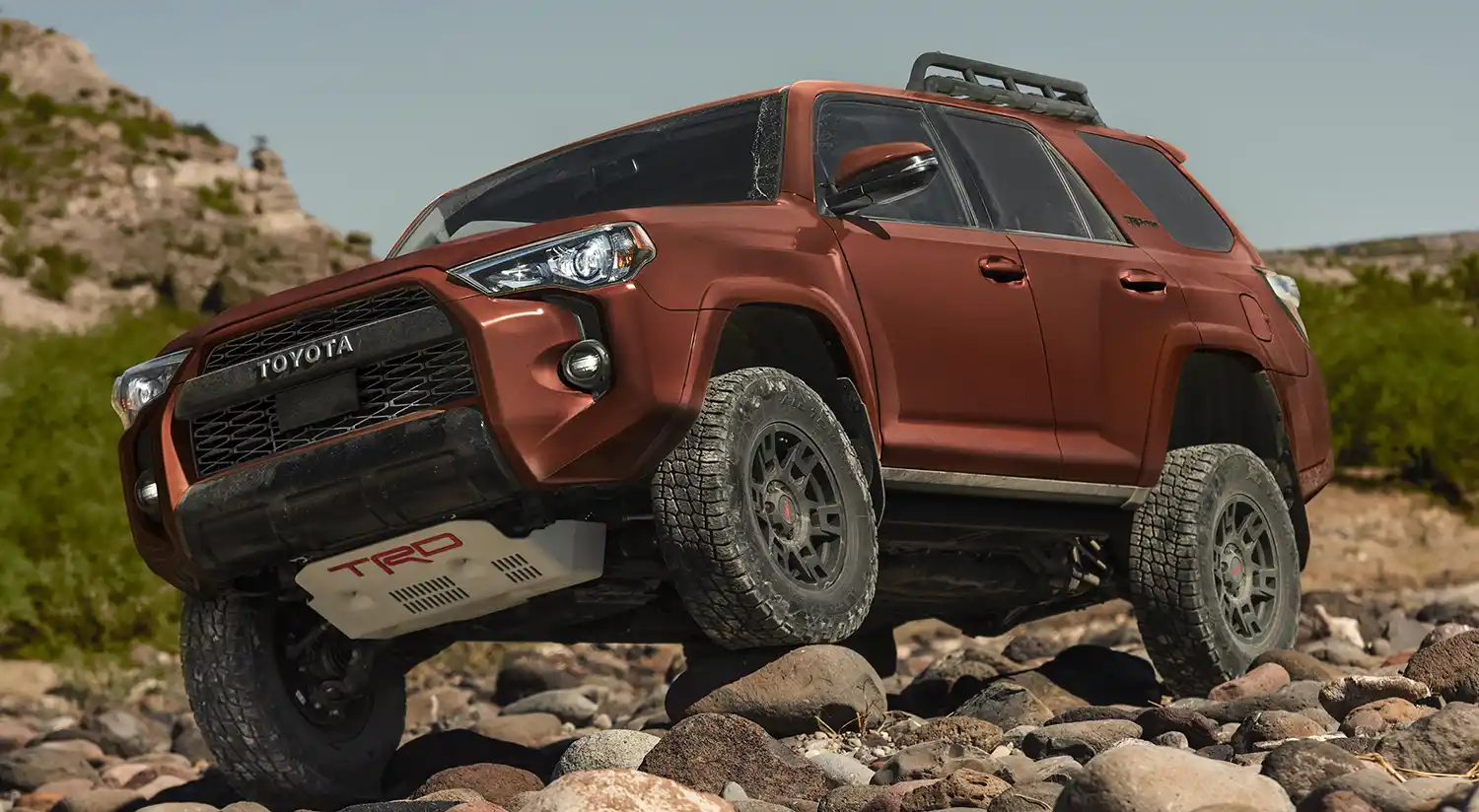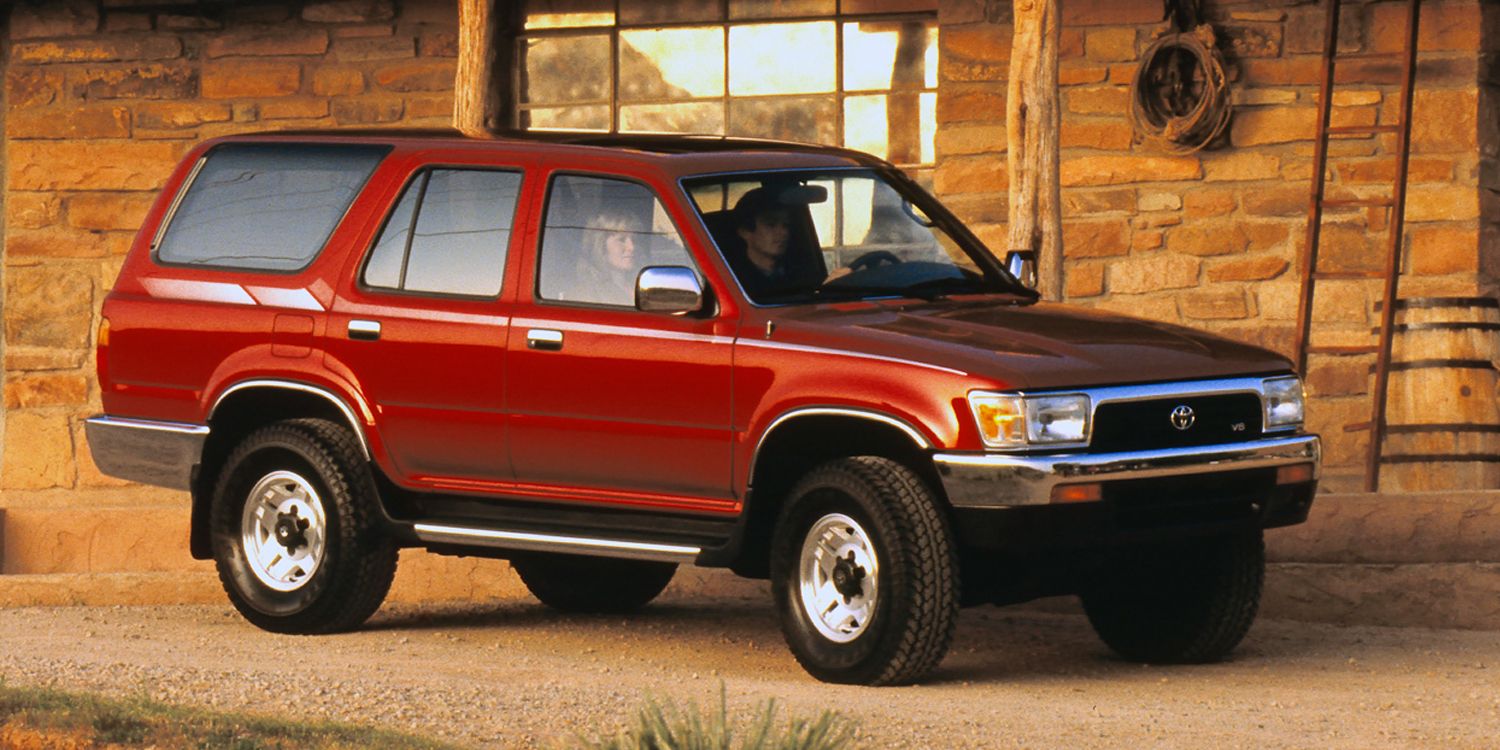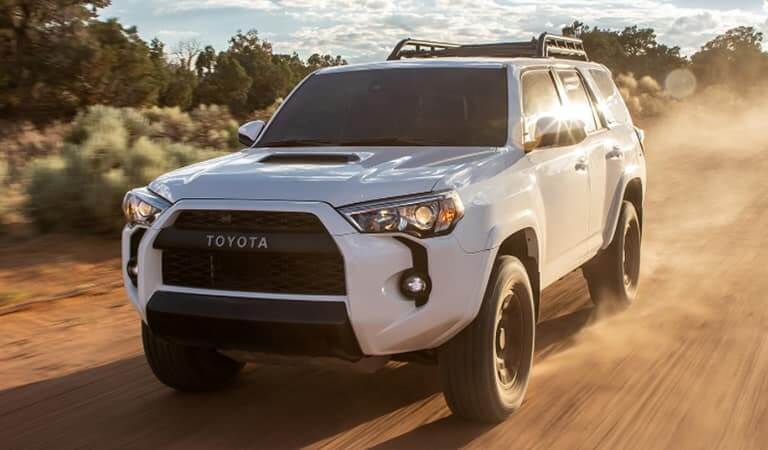The Toyota 4Runner: A Legacy of Capability, Evolving for Efficiency
Related Articles: The Toyota 4Runner: A Legacy of Capability, Evolving for Efficiency
Introduction
With enthusiasm, let’s navigate through the intriguing topic related to The Toyota 4Runner: A Legacy of Capability, Evolving for Efficiency. Let’s weave interesting information and offer fresh perspectives to the readers.
Table of Content
The Toyota 4Runner: A Legacy of Capability, Evolving for Efficiency

The Toyota 4Runner, a name synonymous with ruggedness and off-road prowess, has long been a favorite among adventurers and families seeking a capable and reliable vehicle. While its reputation for durability and off-road performance remains steadfast, the automotive landscape is undergoing a significant shift, driven by growing concerns about fuel efficiency and environmental impact. In this context, the future of the 4Runner, particularly its fuel economy, is a topic of considerable interest.
While specific fuel economy figures for the 2025 Toyota 4Runner are not yet available, analyzing current trends and advancements in automotive technology provides insights into what we can anticipate.
Factors Influencing Fuel Economy in the 2025 4Runner
Several factors will play a crucial role in shaping the fuel economy of the 2025 4Runner:
- Engine Technology: The 4Runner’s powertrain is likely to evolve. Toyota is actively developing hybrid and plug-in hybrid systems, which could be incorporated into future 4Runner models. These technologies offer significant fuel efficiency gains by leveraging electric motors to assist the gasoline engine, reducing fuel consumption and emissions.
- Weight Optimization: Reducing the overall weight of the vehicle is another key strategy for improving fuel economy. This could involve utilizing lighter materials for body panels, chassis components, and other parts, without compromising the 4Runner’s renowned strength and durability.
- Aerodynamics: Streamlining the 4Runner’s exterior design to improve aerodynamics can contribute to better fuel economy. This could involve refining the shape of the front grille, side mirrors, and other elements to reduce wind resistance.
- Transmission Efficiency: Advancements in transmission technology, such as the use of multi-speed automatic transmissions with optimized gear ratios, can enhance fuel economy by maximizing engine efficiency across different driving conditions.
- Driving Habits: Fuel economy is also significantly influenced by driver behavior. Practices such as maintaining a steady speed, avoiding aggressive acceleration and braking, and ensuring proper tire inflation can significantly impact fuel consumption.
The Importance of Fuel Efficiency in the 2025 4Runner
The pursuit of better fuel economy in the 2025 4Runner is driven by several factors:
- Environmental Responsibility: Reducing fuel consumption directly contributes to lowering greenhouse gas emissions, a crucial step in addressing climate change and promoting environmental sustainability.
- Cost Savings: Improved fuel economy translates into lower operating costs for owners, as they spend less on gasoline. This is particularly relevant in an era of fluctuating fuel prices.
- Government Regulations: Stringent fuel economy regulations are becoming increasingly common worldwide, pushing manufacturers to develop more efficient vehicles.
- Consumer Demand: Consumers are increasingly demanding fuel-efficient vehicles, recognizing the environmental and financial benefits.
FAQs about the 2025 Toyota 4Runner’s Fuel Economy
Q: What kind of fuel economy can I expect from the 2025 4Runner?
A: While specific fuel economy figures for the 2025 4Runner are not yet available, it is reasonable to anticipate improvements over current models. The incorporation of hybrid technology, weight optimization, and aerodynamic enhancements could lead to substantial fuel savings.
Q: Will the 2025 4Runner offer a hybrid option?
A: Toyota’s commitment to hybrid technology suggests that a hybrid variant of the 4Runner is a strong possibility for the 2025 model year. This would offer a significant boost in fuel economy while retaining the 4Runner’s off-road capabilities.
Q: How will the 2025 4Runner’s fuel economy compare to its competitors?
A: The 2025 4Runner’s fuel economy is likely to be competitive with other mid-size SUVs, especially if it incorporates hybrid technology. However, the specific comparison will depend on the powertrain options offered by competitors.
Q: What are some tips for improving fuel economy in the 2025 4Runner?
A: To maximize fuel economy in the 2025 4Runner, consider these tips:
- Maintain a Steady Speed: Avoid excessive acceleration and braking, which waste fuel.
- Utilize Cruise Control: Cruise control helps maintain a consistent speed, reducing fuel consumption.
- Minimize Idle Time: Turn off the engine when parked for extended periods.
- Plan Your Route: Avoid unnecessary driving by planning your trips efficiently.
- Maintain Tire Pressure: Properly inflated tires improve fuel economy and handling.
- Regular Maintenance: Ensure that your vehicle is properly maintained, as this can impact fuel efficiency.
Conclusion
The 2025 Toyota 4Runner is poised to continue its legacy of ruggedness and capability while embracing the evolving needs of consumers and the automotive landscape. By incorporating advancements in engine technology, weight optimization, and aerodynamics, the 4Runner is expected to deliver improved fuel economy, contributing to environmental sustainability and cost savings for owners. As we look towards the future of the 4Runner, its commitment to fuel efficiency reinforces its position as a versatile and responsible vehicle for those seeking adventure and practicality.








Closure
Thus, we hope this article has provided valuable insights into The Toyota 4Runner: A Legacy of Capability, Evolving for Efficiency. We hope you find this article informative and beneficial. See you in our next article!